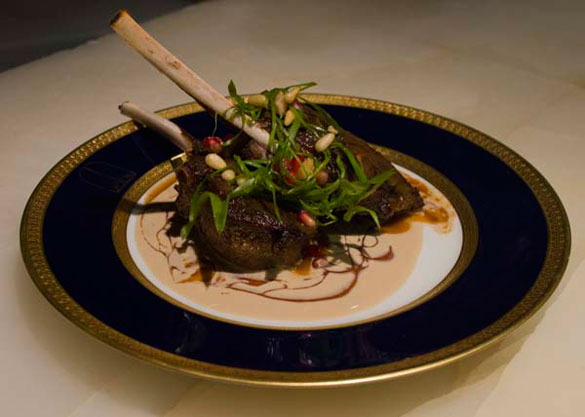Iraq, politics, and aesthetics

Today is a historic day in US-Iraqi relations: President Obama gave a speech earlier this afternoon to mark the official end of US military presence in Iraq. It feels right, then, to pause for a moment of reflection. Let's think, today, about the weight and impact of nearly nine years of non-war. Let's reflect on the complexities of this conflict and its profound impact on the world, on our two nations, and on so many individual people.
The artist Michael Rakowitz is a wonderful companion for such reflections. Since 2003, he has thoughtfully addressed this cross-cultural conflict through a body of work in which he uses his heritage as an American of Iraqi-Jewish descent as one point of departure for new art. In a lot of this work, Rakowitz spins fabulous-but-true stories around historic objects, historical events, and unlikely coincidences. In The Invisible Enemy Should Not Exist, for instance, he is creating replicas of ancient artifacts that are missing, looted, or stolen from the Iraq National Museum.
And for Feast, Michael is extending his ongoing Enemy Kitchen project. That project, which we've covered in prior posts, will take its most ambitious form yet -- a food truck. Through a collaboration between the artist, Iraqi chefs, and members of Iraq Veterans Against the War, the truck will serve up Iraqi food to the public -- presenting it on paper plates printed to match some of Saddam Hussein's china.
That actual china is now on its way back to Iraq, reversing the path taken by those final homeward-bound soldiers. It's a wild coincidence of timing. Just yesterday, Michael was required to hand this china -- which had been purchased on eBay -- over to representatives of the Iraqi government so that it can travel back to Iraq with Prime Minister Nouri al-Maliki. (The dishes came to the Iraqi government's attention in late November because Michael was using them in an Enemy Kitchen-related project sponsored by the public art organization Creative Time.)
Today seems an especially appropriate day to think about these intersecting trajectories of soldiers, china, cultural traditions -- and to consider that time-honored question of what's at stake as artists navigate the intersections of politics and aesthetics.
Top: Michael Rakowitz, Spoils, dish detail, 2011, photograph by Christopher Kissock, Courtesy of Creative Time.